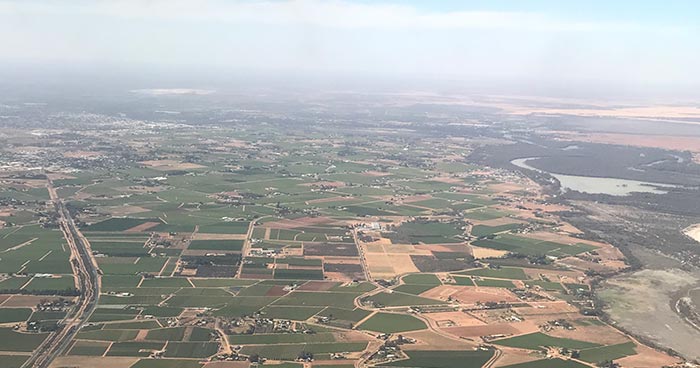New funding for hydrogen technology cluster in the Mallee
The National Energy Resources Australia (NERA) today announced funding to develop an Australian network of hydrogen clusters, one of which will be led by the Mallee Regional Innovation Centre (MRIC) in Mildura. The $1.7 million national funding scheme is part of a strategy to put Australia on the global map for hydrogen technology and expertise.
The announcement cements the Mallee’s position as a viable and strategic location to foster hydrogen capabilities. The Mallee Cluster will cover the north west of Victoria and be one of 13 clusters across the country.

MRIC CEO Rebecca Wells says the funding represented a new opportunity for the region. “We are well positioned to establish a cohesive, valuable cluster and drive hydrogen supply chain development for regional Victoria. We’re excited to see new research and technology development in the hydrogen space and look forward to collaborating with fellow cluster leads around Australia.”
Today’s announcement is a crucial step in building the skills, capacities and commercialisation opportunities necessary to unlock Australia’s potential for a globally competitive hydrogen industry that could add $11 billion and thousands of jobs to the national economy by 2050.
This announcement is a demonstration of what the partnership of MRIC can achieve when working collaboratively with local parties and those outside of the region.
MRIC Director, the University of Melbourne's Professor Michael Stewardson, says “the Centre was designed to complement and leverage local activities, add value and bring in new skills. Hydrogen ticks all those boxes.”
Hydrogen as an alternative fuel has a number of potentials in several industries, many of which are already being explored
MRIC Co-Director and Pro Vice-Chancellor Research Capability at La Trobe University, Professor Ashley Franks, said “this is a great opportunity to draw together local initiatives in hydrogen to drive benefit for the region. Hydrogen as an alternative fuel has a number of potentials in several industries, many of which are already being explored.”
SuniTAFE CEO Geoff Dea says “The hydrogen cluster represents an ideal opportunity to leverage SuniTAFE’s involvement with MRIC for the benefit of our students and industry. From our close work with the transport and logistics sector, we know they are keenly monitoring developments in hydrogen energy.”
“It’s an exciting time for the current crop of school goers too, as we work with MRIC to create challenging, rewarding and sustainable options for their future.”
About MRIC:
The Mallee Regional Innovation Centre (MRIC) is a joint venture from the University of Melbourne, La Trobe University and SuniTAFE, with four focal areas: horticulture, water, energy and the environment in irrigated production and natural resource management along the Murray River from Swan Hill, through to Mildura and the South Australian border.
The Centre strives to fast-track research projects to strategically address key challenges in the Mallee, complementing established activities and seeking opportunities to foster new areas of development and bring new capabilities to the region.
About the hydrogen industry:
Hydrogen when used in a fuel cell, produces water. Hydrogen can be produced from resources including solar and power, biomass, natural gas, nuclear power and can be used to power trucks, cars and houses, with many more applications. Australia’s National Hydrogen Strategy identifies industrial clusters as a key element to creating a viable, successful hydrogen industry.
Media enquiries: Teju Hari Krishna | 0450 501 248 | tejasvi.hari@unimelb.edu.au